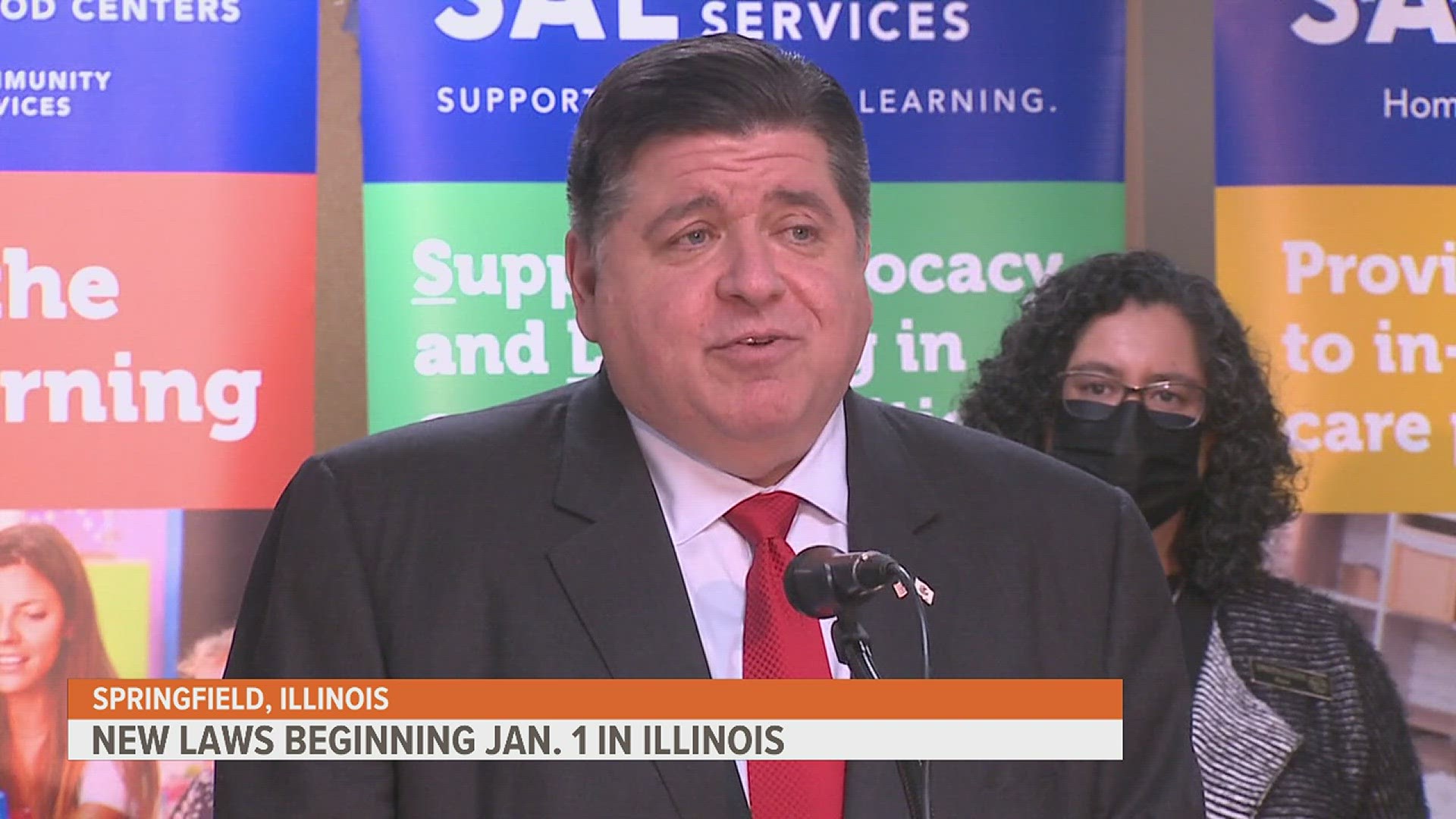ILLINOIS, USA — A new year means new laws in Illinois. Here are some of the notable new laws set to take effect on Jan. 1, 2024.
To watch 5 On Your Side broadcasts or reports 24/7, 5 On Your Side is always streaming on 5+. Download for free on Roku, Amazon Fire TV or the Apple TV App Store.
Banning some semi-automatic weapons
In January 2023, Gov. J.B. Pritzker signed an assault weapons ban into law. The bill went into effect immediately but was quickly challenged in court. It has withstood the legal challenges, and one deadline arrives on Jan. 1.
"Persons who possess a regulated firearm or firearm attachment are required to complete an endorsement affidavit by January 1, 2024," the Illinois State Police website says.
Minimum wage increase
The minimum wage in Illinois will increase to $14 an hour as part of a bill signed into law in 2019. The minimum wage will increase again on Jan. 1, 2025, to $15.
Mandatory paid leave
SB 0208: Illinois employers must offer workers paid time off based on hours worked, with no need to explain the reason for their absence as long as they provide notice in accordance with reasonable employer standards.
Illinois employees will accrue one hour of paid leave for every 40 hours worked up to 40 hours total, although the employer may offer more. Employees can start using the time once they have worked for 90 days. Seasonal workers will be exempt, as will federal employees or college students who work non-full-time, temporary jobs for their university.
Automatic renewal protections
SB 0328: Any automatic renewal product or service must clearly mark the agreement as such. Additionally, the person or business selling the product or service may not charge credit or debit cards or other payment forms without obtaining the customer's consent for renewal.
IDOT mobile app
SB 1526: Requires the Illinois Department of Transportation to develop a mobile app that shows updated traffic conditions. The bill estimates it will cost $2,515000 to develop the app and will require $775,000 more maintenance.
Deep fake protections
HB 2123: Creates the Digital Forgeries Act, which allows individuals depicted in a digital forgery — commonly known as "deep fakes" — to take legal action against any person who creates, solicits the creation of or distributes a deep fake of them without their consent.
No Zooming and driving
HB 2431: Bans videoconferencing while driving.
Pet adoption fees waived for veterans
HB 2500: Amends the Animal Welfare Act to ban animal control facilities from charging adoption fees for dogs or cats if the person presents a valid veteran ID or Illinois Person with a Disability card.
Banning book banning
HB 2789: Public libraries in the state must create a written policy prohibiting the practice of banning books in order to be eligible for state grants. If libraries do not want to develop their own written policy, they can adopt the American Library Association’s Library Bill of Rights.
Punishments for doxing
HB 2954: Creates the "Civil Liability for Doxing Act." Under the act, an individual who engages in “doxing” can be punished criminally as well as in in civil court. Doxing is the publishing of someone's personal information with the intent to harm or harass another person.
Banning solitary confinement of juveniles
HB 3140: The “End Youth Solitary Confinement Act” bans confinement rooms for children under the age of 18 at juvenile or corrections facilities for any purpose other than as a temporary response for behavior that poses a serious and immediate risk of physical harm to themselves or others.
Increased access to fentanyl test strips
HB 3203: Allows pharmacists to sell fentanyl test strips over the and allows county health departments to distribute test strips for free. The strips test for fentanyl, a fentanyl analogue or other drug adulterant in a controlled substance.
Allowing non-citizens to become a police officer
HB 3751: Allows non-citizens who are legally allowed to work in the United States to become police officers. They would be subject to federal approval to obtain and carry a firearm.
Fentanyl education requirements
HB 3924: Amends the Courses of Study article of the state's school code to require instruction on the dangers of fentanyl to students in grades 9-12.
What about Missouri?
Laws in Missouri take effect 90 days after the end of the session in which they were enacted except in emergency cases. Most laws from the most recent legislative session went into effect in August.

